| Home |
India Traffic
|
|
From the moment I hit Chicago in 1956, and saw a woman on
crutches crossing against a red light, I've relished free-for-all
traffic. Then New York in 1967 upped the ante a bit
But pedestrian and motor traffic in Mumbai and other Indian cities seems like the ultimate in traffic complexity and challenge In New York, when two cars are vying for position, as in lane merging, there's a moment at which the front fender of one car edges out that of the other. When that moment comes is usually negotiated and settled fairly early on (though it may not seem so at the time) In India, that moment gets delayed until the very last possible nanosecond, requiring inordinate attention on the part of each participant
|
|
|
Here's a mild case, an intersection in Agra First, recognize that in India you drive on the left side of the road But notice here the several directions in which vehicles are trying to move |
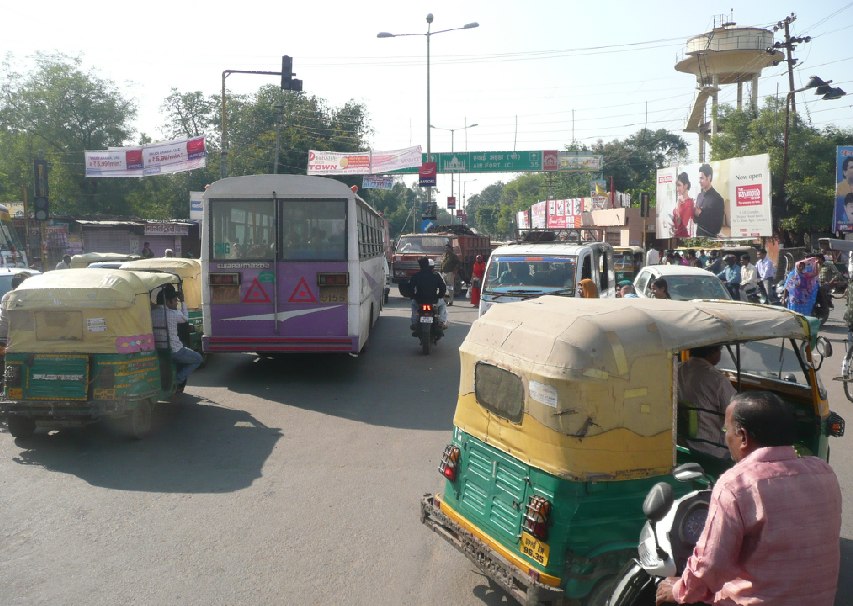
|
|
And the multiplicity of participants--pedestrians, human-powered vehicles, motor cars and buses All pretty much unregulated |
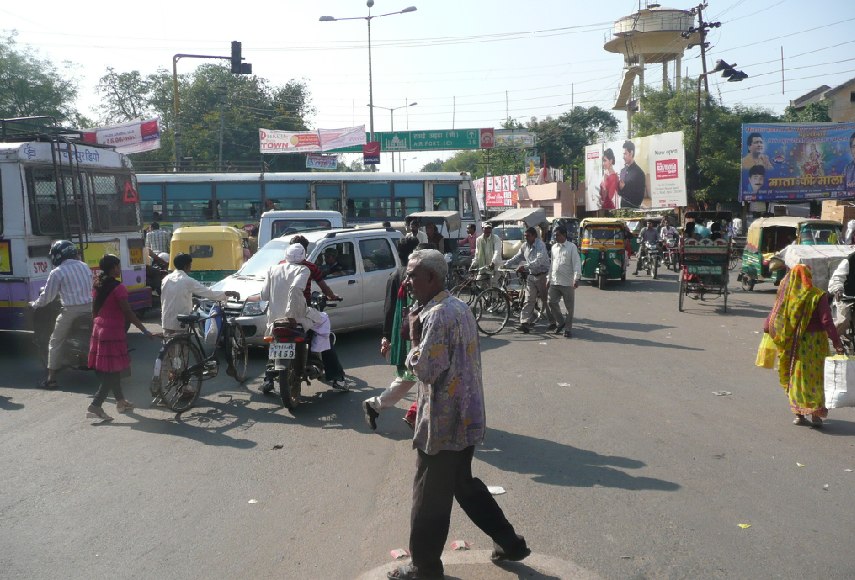
|
|
The sense you get is that the only rule is that there are no rules India has very few traffic lights, very few traffic policemen, very few traffic-regulating signs (few, that is, relative to the size of the country and its population)
|
|
|
Each participant pressing for advantage |
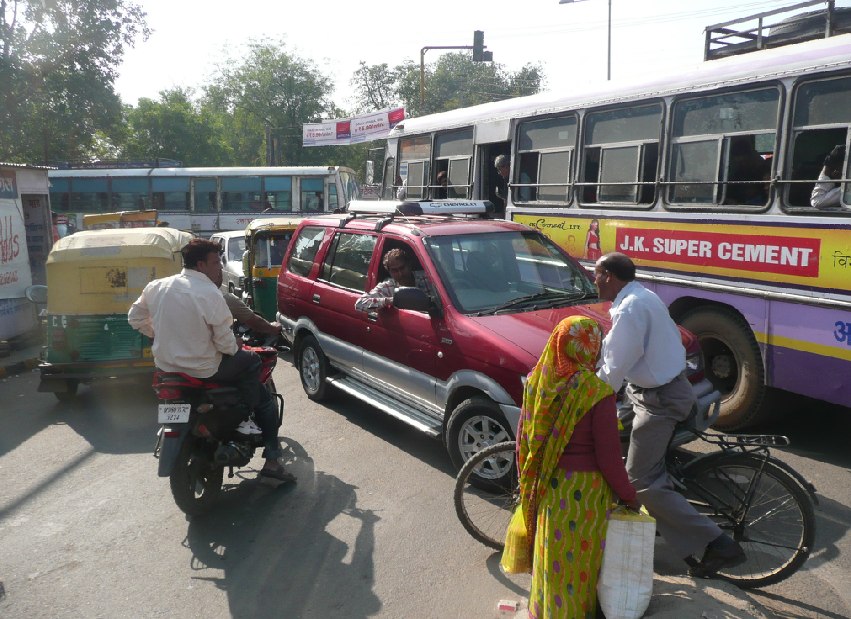
|
|
Size Matters Might makes right of way
|
|
|
In Varanasi I needed to go from my guest house to an intersection a few
kilometers away. A man offered to take me on his motor bike.
Hop on the back with me |
|
|
We launch into traffic |
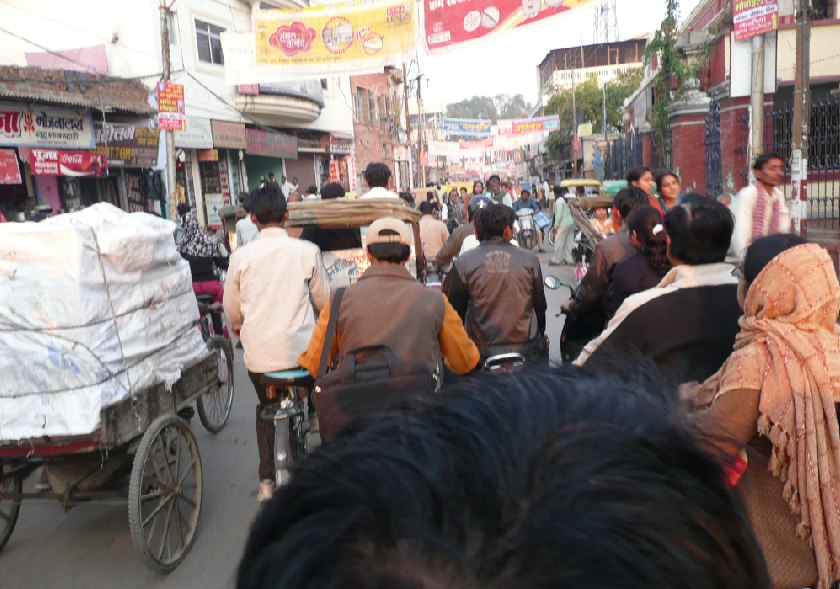
|
|
And he starts looking for a way to open up a hole and move ahead He does this aggressively |
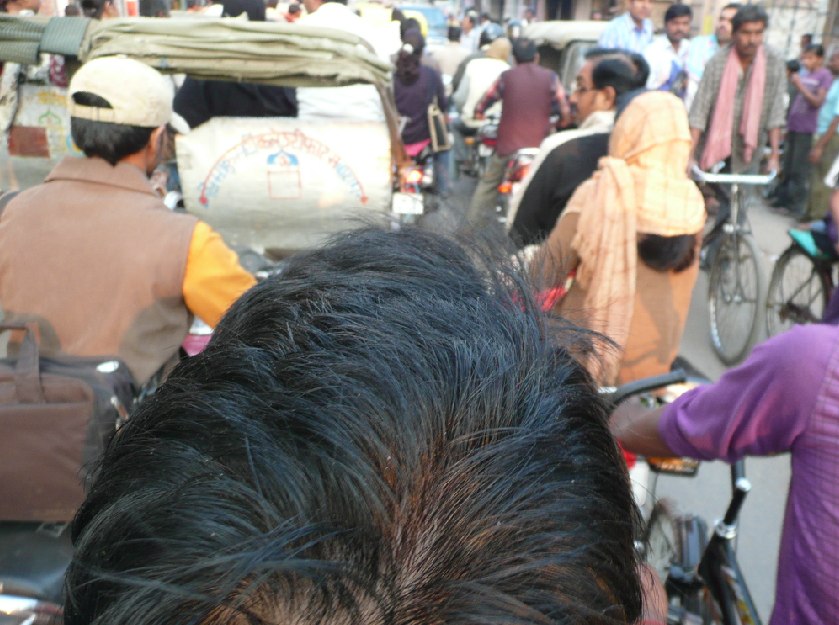
|
|
Notice how much attention he has to pay to his various adversaries, the close tolerances One moment of inattention, and someone will pay dearly |
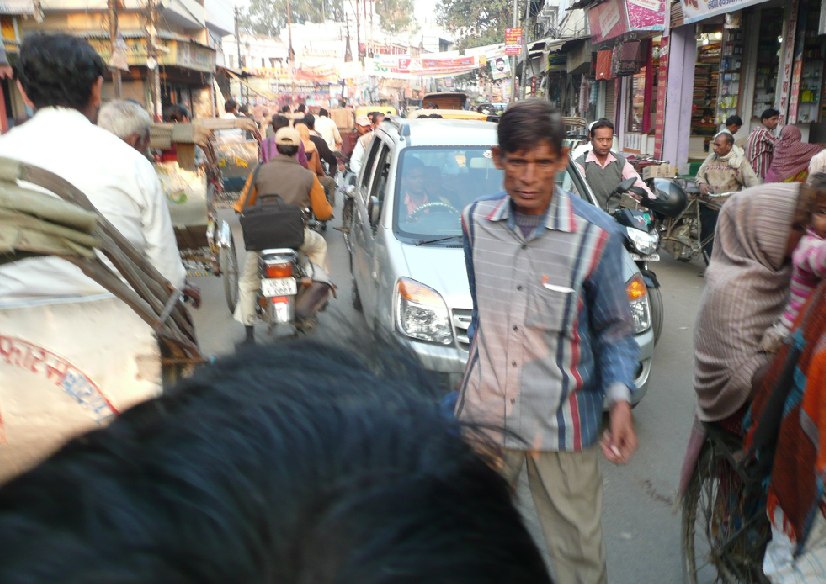
|
|
On the return trip we enter narrow alleys to approach the guest house Motorbikes routinely storm up these passageways with careful abandon |
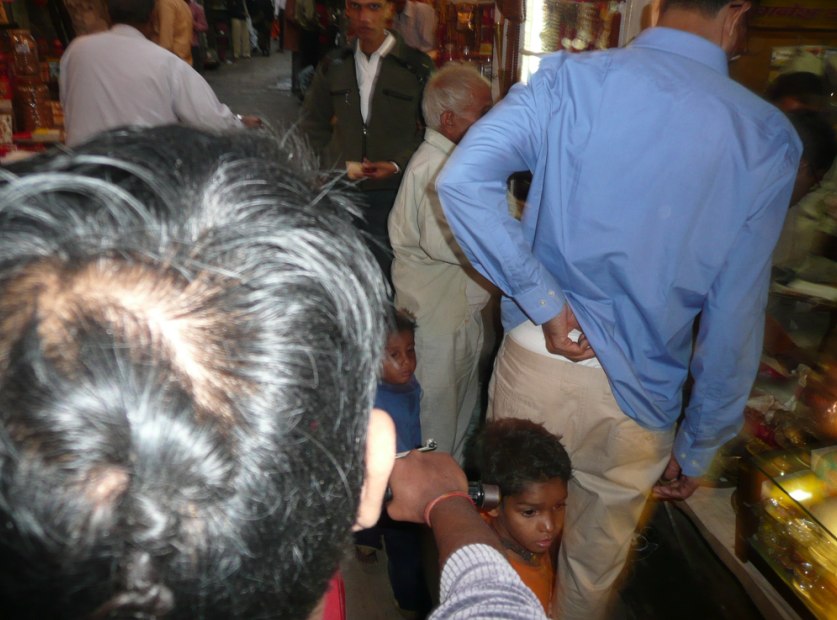
|
|
He negotiates with an approaching procession |
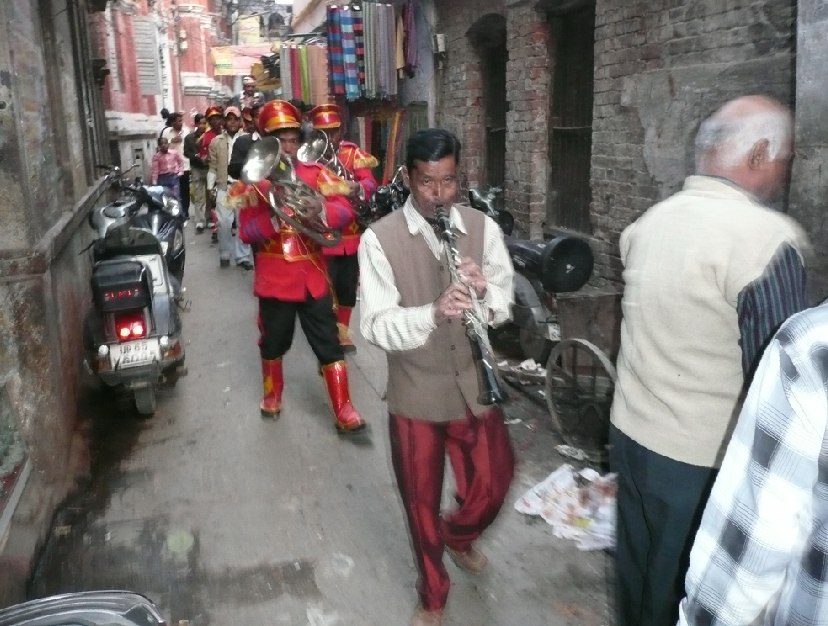
|
|
But pushes for every advantage he can get
|
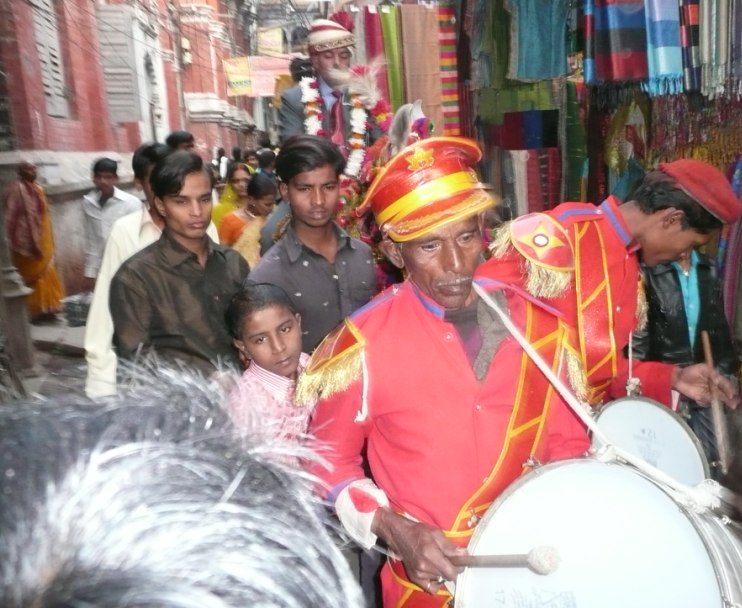
|
|
Now come with me on an inter-city bus, in the south of India
Here we're passing through a town, seeing the typical mix of traffic, with the bus aggressively moving forward |
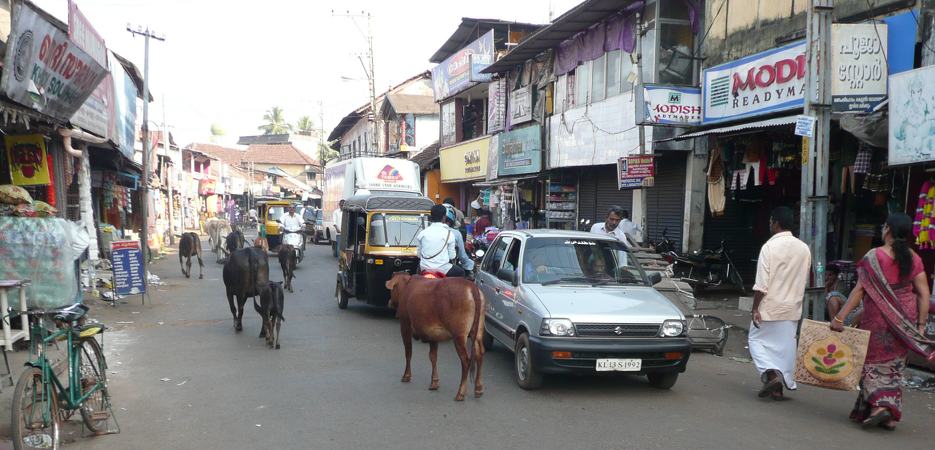
|
|
On the open road, going perhaps 50mph/75kph, the bus will coopt the center line, routinely passing between cars going each direction |
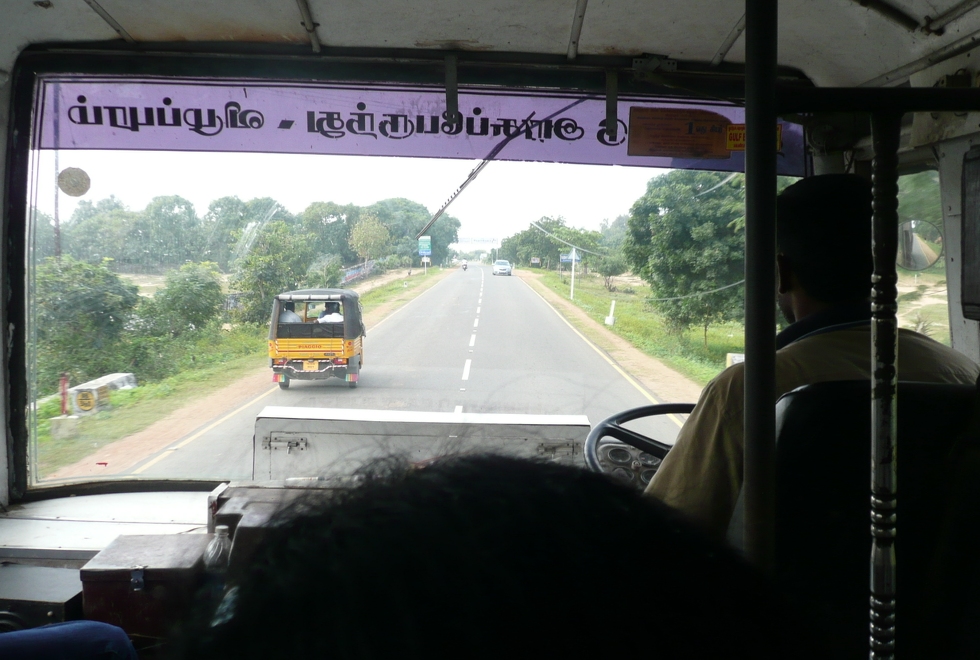
|
|
Smaller vehicles, the 2- and 3-wheelers, will have no choice but to accommodate to the bus |
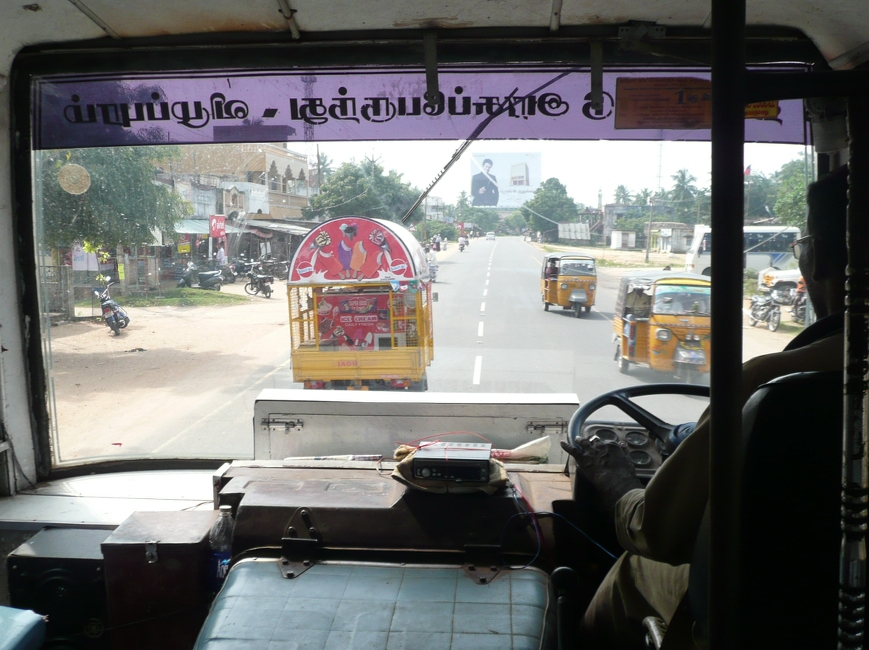
|
|
In this case the bus did not yield the center area, and the oncoming black car continued to pass the 2-wheelers Acceptable practice |
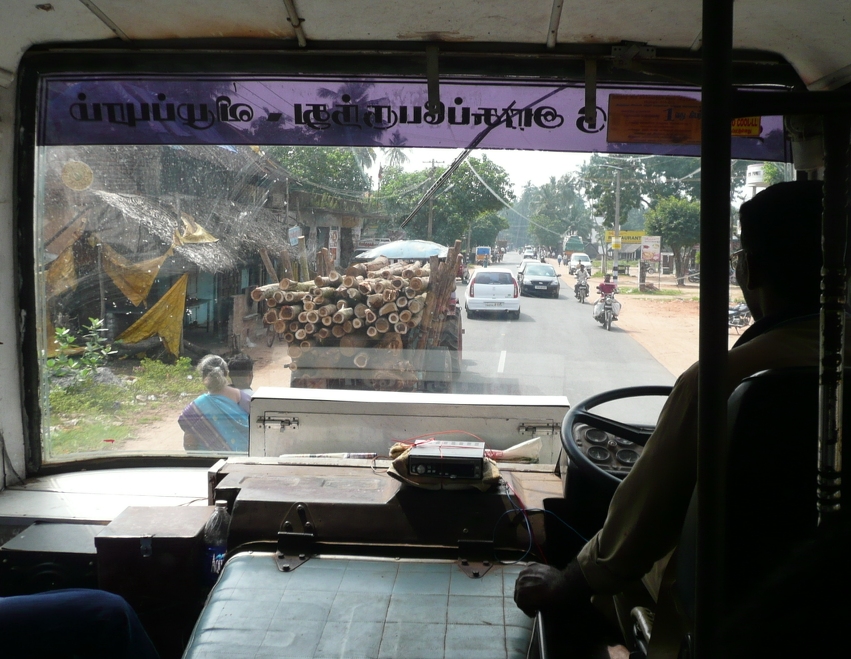
|
|
One particularly aggressive bus driver was on the route from Kannur (Kerala) to Mangalore Here we're again going perhaps 50mph/75kph, and he stays in the center, backing off only if absolutely necessary |
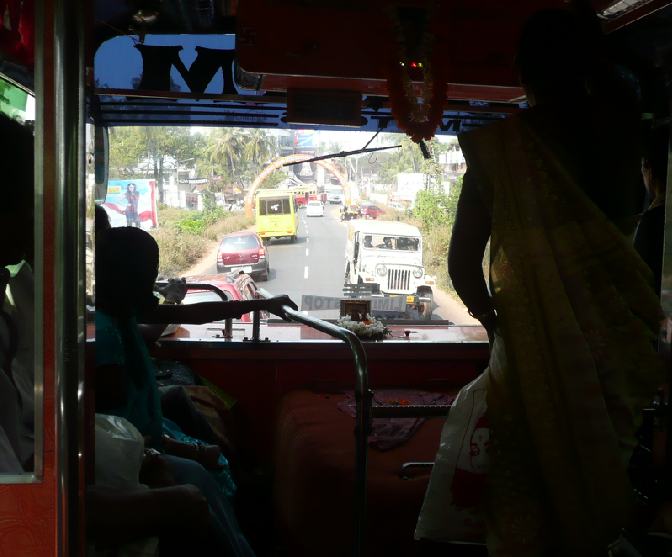
|
|
He'll continue to wedge between traffic going both directions |
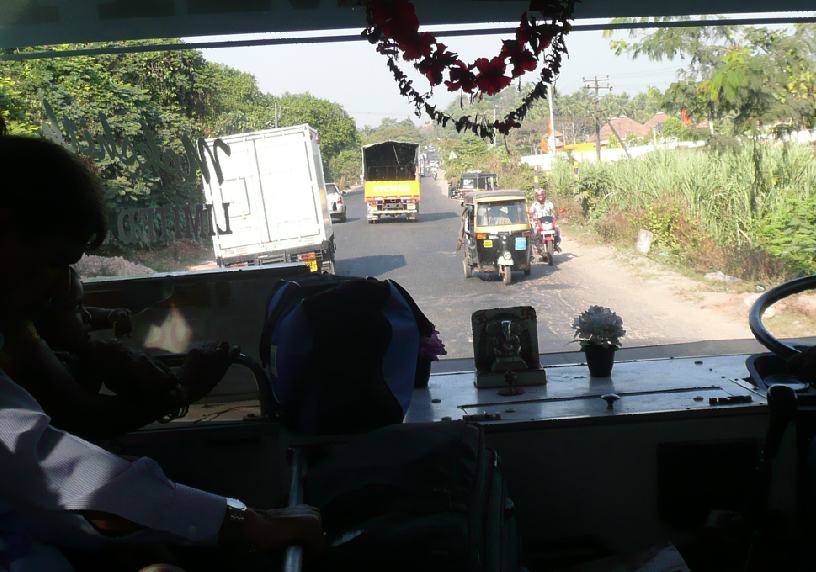
|
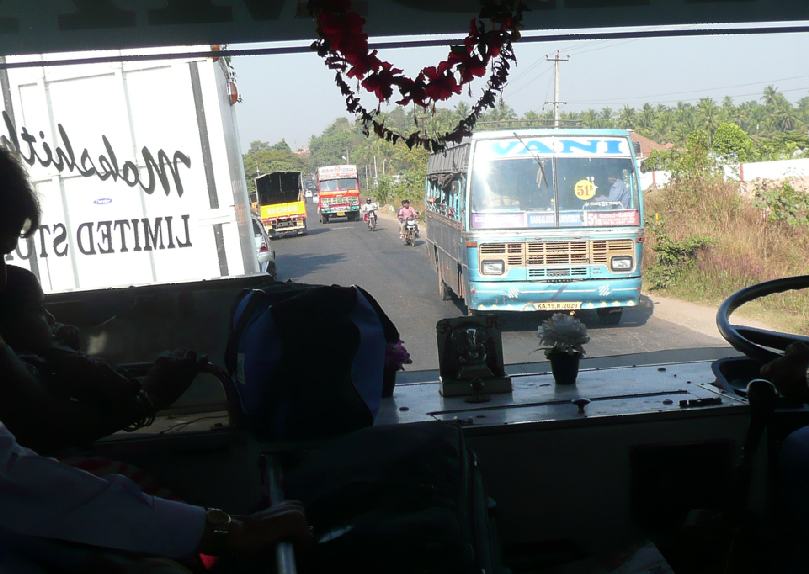
|
|
|
Cars understand that mass is might, and the 2-wheelers take what they can get--which is last position, unless there are bicycles |
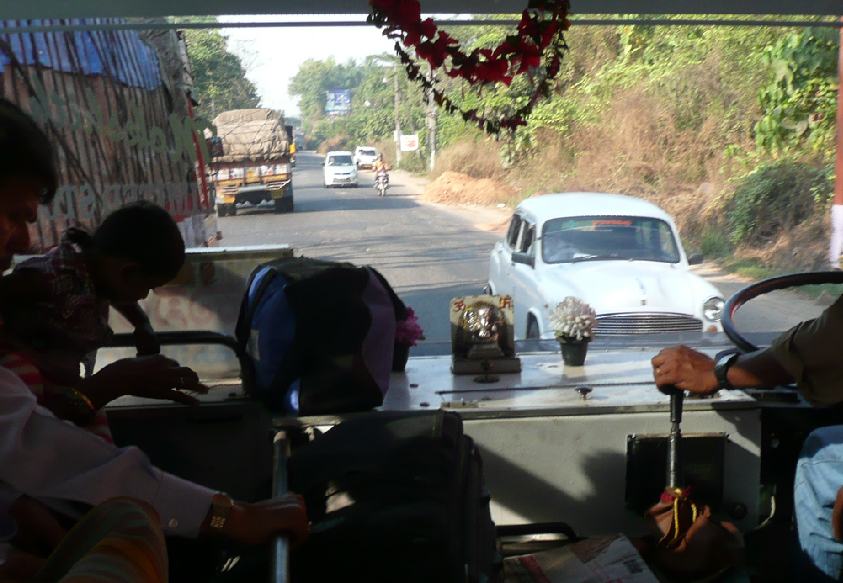
|